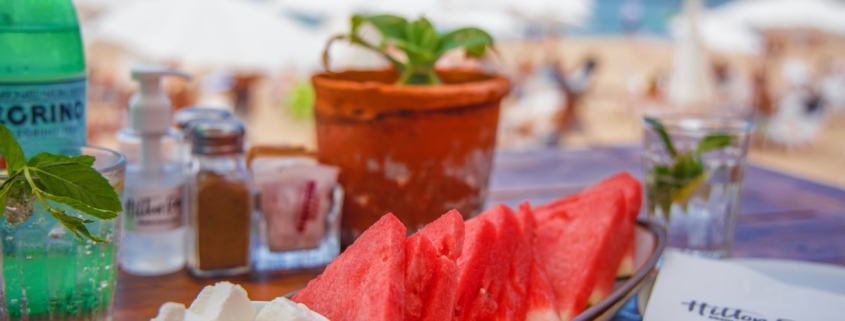Spark by Hilton: Hotels Must Focus on Need-State Occasion-Driven Segments
Hilton just introduced a new hotel brand in its Elevated Essentials group of hospitality offerings. The Elevated Essentials category comprises Hilton Garden Inn, Hampton by Hilton, Tru by Hilton and the latest entry, Spark by Hilton. The overarching description of the Elevated Essentials group is “Signature amenities and services in all the places you want to be.”
In describing Spark, Hilton’s Chief Brand Officer said, “In looking at the economy category, we saw a segment that has grown dramatically but lacks consistency, providing us an opportunity to deliver on the needs of this underserved segment of travelers. True to its name, Spark by Hilton signifies the start of something great – a moment of ignition as we add energy and momentum into the category and deliver the most reliable and friendly stays. This breakthrough premium economy brand will deliver the essentials done exceptionally well for every guest, every time along with friendly service – ensuring all travelers can enjoy a great hotel experience where they feel truly cared for.”
There are a couple of take-aways from this statement that have consequences for brands.
First, segmenting by price. The hotel industry tends to segment by price. The underlying thought is that there are expensive hotels, less expensive hotels and inexpensive hotels. Amenities and services are designed according to the price point. This is why the hotel industry market segments are usually labeled Luxury, Upper Upscale, Upscale, Upper Midscale, Midscale and Economy. And, now, Hilton has segmented Economy with a Premium Economy.
Price segmentation is not customer-centric. Price segmentation makes things clear for the industry, but is of not help to a customer making a decision. Price segmentation is designed for the hotel owners not their guests. Customers do not say “I am looking for a premium economy hotel.” It is doubtful that a customer knows what Upper Upscale is relative to Upscale in terms of services and amenities. Customers want to know that the brand will satisfy their needs, solve their problems and be correct for their situation. No matter how the hotels spin the labels, price segmentation is generic marketing. Perpetually focusing on price is a pathway to commoditization.
Second, price segmentation leads to the mistaken mismarketing idea that there is a value segment. Low price and best value are not the same thing. Focusing on low price reinforces this unfortunate idea that there are “value conscious” customers versus “non-value-conscious” customers. This is simply not true. Everyone is value conscious. Customers buying a Mercedes S-class believe the vehicle is a good value for them. Considering their situation, these drivers believe the vehicle is the best value to satisfy their needs. Likewise, the Kia customer think Kia is the best value to satisfy their needs. The customers shopping for an engagement ring at Zales think the value is excellent as do the customers shopping for an engagement ring at Tiffany’s.
Persistent focus on low price at the expense of great brand can quickly demean the brand.
Third, relevant differentiation is more than features or attributes of a brand. A brand is a promise of a relevant, differentiated trustworthy experience. A brand experience consists of functional, emotional and social benefits. The brand experience also reflects the users’ values and their perceived, appealing brand personality. A brand’s features are the proof of the functions, benefits, customer values and brand personality. Focusing on features alone is death-wish marketing. Features can be copied. The brand experience cannot.
Furthermore, in the hotel industry, a focus on features creates mystifying relevant differences among brands. The brands in the Elevated Essential group tend to just restate the same features.
Spark by Hilton
Spark by Hilton has this brand promise: “Practically inspired. Simply delightful. A budget-friendly stay offering the best of everything you need, done just the way you want.”
Spark by Hilton’s elements are: thoughtful simplicity, reliable service, unexpected touches and consistent quality.
Hilton Garden Inn
Hilton Garden Inn: “Offering upscale accommodations and unexpected amenities to open up the brighter side of travel and out the best in you.”
“Our goal is to make your stay better and brighter. If something isn’t just the way you like it, simply let any hotel team member know, and we’ll make it right. Guaranteed.”
Hampton by Hilton
Hampton by Hilton: “Always delivering an exceptional experience you deserve with thoughtful service, free hot breakfast and a warm, friendly smile. Every time.”
Every Hampton Inn and Hampton Inn & Suites is committed to the 100% Hampton Guarantee providing an exceptional guest experience and consistent, high-quality accommodations and amenities.”
Tru by Hilton
Tru by Hilton: “With free pancake breakfast, a playful lobby packed with games and cozy nooks, and fun-sized rooms, you’ll get true comfort and more value.”
“At Tru, we’re rethinking hotel design to deal in trade-ups, not trade-offs. That means more space to spark creativity, more opportunities for connection and thoughtfully redesigned guest rooms that concentrate on comfort. Add in a must-see lobby and you’ve found your favorite cost-conscious hotel.”
Hilton believes that Spark by Hilton reimagines the economy category. And, maybe it will. But, the best way to reimagine the brands is to develop brand positionings that are meaningfully differentiated across a need-states occasion-driven landscape where everyone is viewed as value-conscious and price is a strategy.



